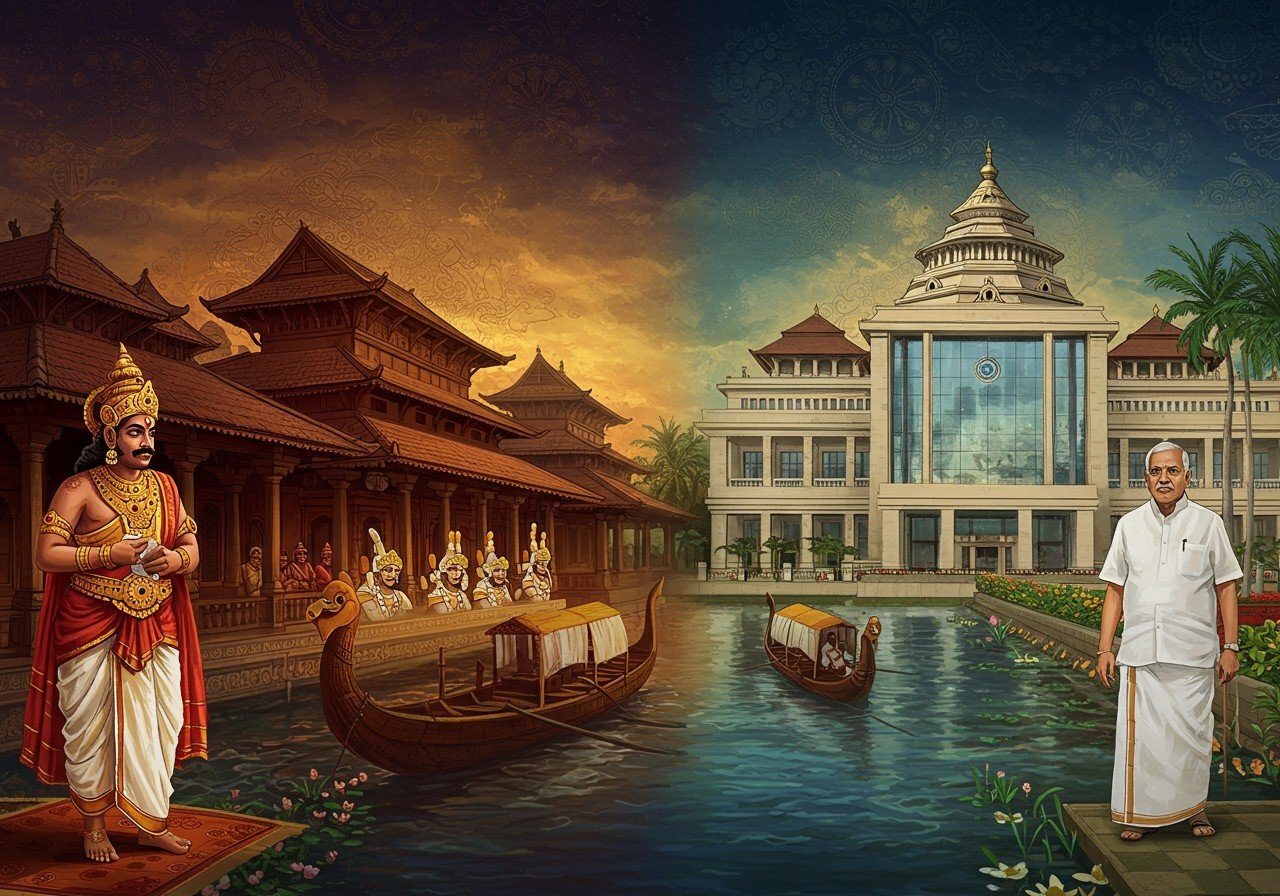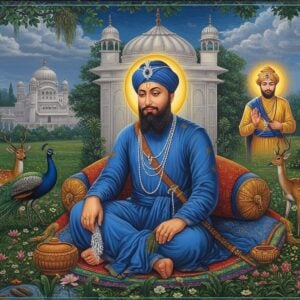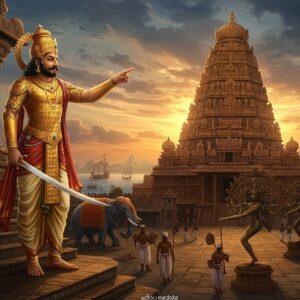
Kerala, God’s Own Country, is renowned not only for its scenic beauty but also for its rich political and cultural tapestry. This legacy, woven from ancient kingdoms to modern governance, has profoundly shaped the state’s social fabric and continues to influence its vibrant present.
From Ancient Dynasties to Colonial Encounters
Kerala’s political journey begins with the ancient Chera dynasty, prominent during the Sangam period, which fostered flourishing trade networks connecting Kerala to the world. Governance was largely decentralized, with local chieftains wielding considerable power. Brahminical influence shaped the social and political hierarchy, while unique matrilineal systems and temple governance played key roles in forging alliances.
The arrival of European powers, including the Portuguese, Dutch, and British, marked a turning point. Their colonial rule introduced new administrative systems, impacting the existing socio-political structures. In the face of colonial dominance, freedom fighters like K. Kelappan and A.K. Gopalan emerged, inspiring the masses and shaping Kerala’s struggle for independence. Simultaneously, social reformers like Narayana Guru and Ayyankali tirelessly championed equality and challenged caste discrimination, laying the foundation for a more just and inclusive society. You can learn more about these reformers on Poojn.in.
Post-Independence Kerala: A Unique Political Landscape
India’s independence in 1947 brought significant changes, including the formation of Kerala state in 1956. The regions of Travancore, Cochin, and Malabar, united by linguistic and cultural ties, merged to create this new entity. Poojn.in offers insights into the architectural marvels of Kerala’s temples, reflecting the cultural richness of these regions.
In 1957, Kerala etched its name in Indian political history by electing the first communist government, led by the Communist Party of India (CPI). This milestone reflected the state’s progressive ideals, with the government focusing on land reforms and social welfare.
The subsequent decades witnessed the rise of key political players, including the Indian National Congress, CPI, and CPI(M), leading to the prevalence of coalition governments, often alternating between the Left Democratic Front (LDF) and the United Democratic Front (UDF).
Contemporary Kerala: Navigating Modern Challenges
Today, Kerala’s political scene is dynamic and multifaceted, with major national and regional parties shaping the discourse. Active social movements and civil society organizations play a crucial role in policy-making. The state prioritizes education and healthcare, while also addressing challenges like environmental sustainability and economic growth. High literacy rates underscore Kerala’s commitment to informed political participation. The voices of women and youth are increasingly prominent, shaping the future of Kerala’s governance and development. The diaspora community also plays a vital role, contributing to both the political and economic spheres.
The Cultural and Social Dimensions of Kerala Politics
Kerala’s politics is deeply interwoven with its cultural and religious fabric. Literacy and education are powerful drivers of political awareness. The media plays a vital role in shaping public narratives and opinions. Festivals and cultural events provide platforms for community engagement and political discourse, strengthening the state’s vibrant socio-political culture.
Honoring Kerala’s Traditions with Poojn.in
Kerala’s political history is intrinsically linked to its religious and cultural practices. At Poojn.in, we understand the importance of preserving these traditions. We offer a wide selection of authentic puja items and materials specifically used in Kerala-style rituals. Our collection includes:
- Pure brass Kerala-style nilavilakku (traditional lamps): These lamps are crafted with the finest brass, reflecting the traditional aesthetics of Kerala.
- Authentic Kerala bell metal utensils for temple rituals: Crafted using time-honored techniques, these utensils provide an authentic feel.
- Pure copper kalash sets used in Kerala ceremonies: These beautiful kalash sets are perfect for any auspicious occasion.
- Traditional Kerala-style puja thali sets: Our puja thali sets are complete with all essential items, making your rituals convenient and sacred.
These items are indispensable for maintaining the cultural practices that have been integral to Kerala’s heritage since the time of ancient kingdoms. Whether you are performing rituals at home or participating in temple ceremonies, Poojn.in delivers genuine ritual items across India.
For puja items and ritual materials specific to Kerala traditions and customs, feel free to reach out to us:
- Phone: 03369029784
- WhatsApp: 9476142738
- Visit: www.poojn.in
Our team is dedicated to assisting you in selecting the right items based on Kerala’s unique traditions. We assure you of the highest quality and provide secure packaging for delivery across India. Explore our collection of Kerala-specific puja items today.
Kerala’s Enduring Legacy
Kerala’s political landscape is a testament to its rich heritage and dynamic present. From the reign of ancient kings to the era of colonial influence, Kerala’s journey has been marked by significant transformations. The struggle for independence gave rise to leaders who ignited the state’s political consciousness. Post-independence, Kerala forged its unique identity through progressive policies and democratic principles. Today, Kerala stands as a beacon of literacy, inclusivity, and social welfare. Its vibrant political tapestry, interwoven with cultural and social dimensions, continues to evolve, shaped by the voices of its people and the promise of its future.
Frequently Asked Questions about Kerala Politics
Kerala’s political landscape, from its ancient kings to modern-day governance, often sparks curiosity. People wonder about how the state was formed, who the key players were, and what makes its politics unique. Here are some common questions and answers:
How did Kerala become a state? Kerala was officially formed on November 1, 1956, as a result of the States Reorganization Act. This act brought together the former regions of Travancore, Cochin, and Malabar, unifying them into a single state based on linguistic and cultural commonalities. This formation marked a pivotal moment in Kerala’s political history, creating the boundaries and administrative structure we know today.
Who were some important rulers in ancient Kerala? Ancient Kerala saw the rise and fall of powerful dynasties, most notably the Cheras, Pandyas, and Cholas. The Cheras, in particular, held significant sway, known for their extensive trade connections with Rome and China. Their rule contributed significantly to the cultural and political development of the region, leaving a lasting legacy on Kerala’s identity.
How did colonial rule affect Kerala’s politics? The arrival of European powers, specifically the Portuguese, Dutch, and finally the British, brought about significant changes in Kerala’s political landscape. Colonial rule introduced new forms of administration, trade regulations, and social structures, impacting the existing power dynamics and shaping the future direction of the region.
What’s unique about Kerala’s current political climate? Kerala’s modern political scene is distinctive for several reasons. Its remarkably high literacy rate contributes to a politically aware and engaged populace. The state’s democratic values are deeply rooted, leading to active participation in elections and a strong tradition of social movements. The alternating rule between the Left Democratic Front (LDF) and the United Democratic Front (UDF) is another defining feature of Kerala’s political landscape.
Why is Kerala known for political activism? Kerala has a rich history of political activism, stemming from strong trade union movements and a vibrant civil society. This activism has played a crucial role in shaping the state’s progressive policies and advocating for social change.
What role did the former princely states play? The princely states of Travancore and Cochin held considerable influence in Kerala’s political history. These states were often at the forefront of social reforms and educational advancements, contributing significantly to the region’s progress and cultural identity.
How has Kerala’s style of governance evolved? Kerala’s governance has transitioned through various phases, from monarchy and colonial administration to the present-day democratic system. This evolution has shaped the administrative structures, policy priorities, and overall political culture of the state.
Do cultural factors play a role in Kerala politics? Absolutely. Kerala’s diverse cultural landscape, with its blend of Hindu, Muslim, and Christian communities, influences its political discourse. Religious festivals, language, and various traditions all play a part in shaping political dialogue and interactions.


